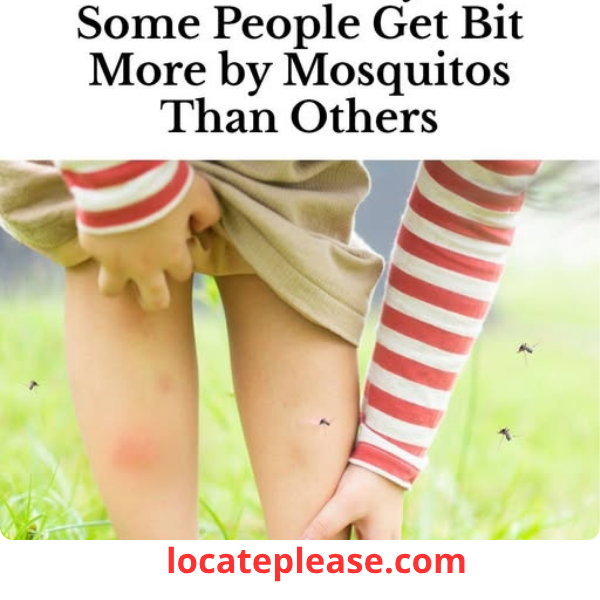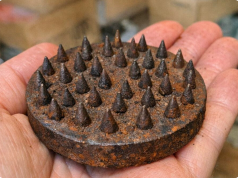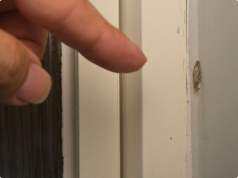Constantly swarmed by mosquitoes while others seem untouched? You’re not imagining it—some people really are mosquito magnets. But why does this happen? The answer lies in a combination of biology, chemistry, and even your genetic makeup. Let’s dive into the science behind why mosquitoes target certain individuals more than others and what you can do to protect yourself.
Your Breath Attracts Mosquitoes
One of the most surprising facts about mosquitoes is that they can detect you from nearly 100 feet away —and it’s all thanks to your breath. Female mosquitoes (the ones that bite) rely on sensory cues like smell and body odor to track down their next meal. One key attractant is carbon dioxide , which we exhale with every breath.
“Each person gives off more than 300 chemicals from the skin and over 100 in exhaled breath,” explains Bart Knols, PhD, a vector biologist who studies mosquitoes. These chemicals create an “odor plume” that mosquitoes can follow like a trail. While carbon dioxide initially draws them in, researchers have found that mosquitoes often veer away from the breath and head toward exposed skin instead. This behavior is linked to the same receptors that detect skin odors, which explains why mosquitoes are also attracted to smelly items like stinky socks, worn clothes, and bedding—even when no one is around.
Your Smell Attracts Mosquitoes
Beyond breath, your skin chemistry plays a major role in how attractive you are to mosquitoes. Different mosquito species are drawn to specific compounds on the skin. For instance:
- Yellow fever mosquitoes and Asian tiger mosquitoes love lactic acid , a compound produced by the skin.
- African malaria mosquitoes are drawn to a blend of fatty acids emitted by human skin.
Your unique mix of skin chemicals depends on several factors, including:
- Genetic makeup
- Health status
- Diet
- Skin pH
- Microflora (the microorganisms living on your skin)
Knols explains that bacteria on the skin break down compounds released through our pores, creating the odors that mosquitoes find irresistible. In other words, it’s not you attracting mosquitoes—it’s the bacteria living on your skin. Everyone has a distinct bacterial profile, which is why some people are more prone to bites than others.
Debunking Common Myths
There are plenty of myths about why mosquitoes target certain people. Let’s set the record straight:
- Sweet blood: There’s no evidence that mosquitoes prefer “sweet” blood or certain blood types.
- Vitamin B or garlic: Despite popular belief, taking vitamin B or eating garlic won’t make you less appealing to mosquitoes.
- Clothing color: While dark clothing may make you easier to spot, mosquitoes are primarily attracted to smells, not colors.
These misconceptions often lead people astray when trying to avoid bites. Instead, focus on proven methods for protection.
How to Keep Mosquitoes Away
If you’re a mosquito magnet, don’t despair—there are effective ways to keep these pesky insects at bay:
1. Use a Reliable Repellent
Invest in a high-quality repellent and apply it to all exposed skin. According to Knols, the best options include:
- DEET
- Picaridin
- Lemon-eucalyptus oil (with elevated concentrations of citriodiol)
Avoid relying solely on citronella , as its protection lasts only a short time.
2. Dress Smart
Wear long sleeves and pants, especially during peak mosquito hours (dawn and dusk). Light-colored clothing may help reduce visibility to mosquitoes.
3. Eliminate Standing Water
Mosquitoes breed in stagnant water, so remove any sources of standing water around your home, such as flowerpots, birdbaths, or clogged gutters.
4. Use Natural Repellents
Certain plants, like citronella , lavender , basil , and catnip , naturally repel mosquitoes. Placing these plants near windows or outdoor seating areas can help deter bugs.
5. Stay Cool and Dry
Sweat and body heat can make you more noticeable to mosquitoes. Staying cool and dry can reduce your attractiveness.
While it’s frustrating to be a mosquito magnet, understanding the science behind their attraction can help you take proactive steps to protect yourself. Remember, mosquitoes are drawn to a combination of factors like carbon dioxide , skin chemicals , and bacterial activity —all of which vary from person to person. By using effective repellents, eliminating breeding grounds, and staying mindful of your surroundings, you can minimize your chances of becoming a mosquito’s next meal.
So, whether you’re enjoying a summer barbecue or relaxing outdoors, arm yourself with knowledge and tools to stay bite-free. After all, nobody wants to be the human buffet at the pa






